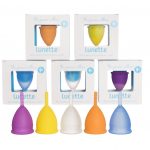Vitamins and Nutrients for Pregnancy
Pregnancy is a time that should be chockfull of joyous moments but many moms to be find that they are stressed out with an overload of constant information about what they should and should not do. Trying to figure out what you should be eating, what nutrients you need and what supplements you should take can put a damper on the joy of being pregnant.
You likely are getting a ton of information from well-meaning friends and relatives that often will conflict with what your health care provider is telling you. It can be very confusing. Most of the nutrients and vitamins that you need during pregnancy are the same nutrients and vitamins that you need when you are not pregnant just at a larger dosage.
One of the misconceptions about pregnancy and nutrition is that the baby needs the extra nutrition, when the reality is, adding more vitamins to your regime is for your body. The baby will deplete the nutrients that you have on board and will literally drain you.
The human body is designed to protect the fetus and will take whatever vitamins and nutrients you have available to promote the healthy growth of the baby. The goal is that mom and baby remain healthy through-out the pregnancy. The right nutrition will ensure that you both do.

The Facts
Advice is rampant when you are expecting, sticking to the facts is the best way to ensure that both you and baby do well during the pregnancy.
- Folic acid– this is a very important nutrient for baby, it helps with brain development and it also helps with the placenta development, this should be considered a crucial nutrient. Folic acid can be found in spinach and green leafy veggies, strawberries, oranges, peas, beans and some pastas.
- Calcium– this helps bones to develop and keeps moms bones strong. Dairy products, yogurt, cheese, leafy greens, canned fish and soy products.
- Niacin-helps with the development of skin, nerves and digestive processes. Niacin is found in eggs, peanuts and other high protein foods.
- Vitamin D-this helps the body to digest calcium and promotes strong teeth and bones. It can be found in fortified milk, boney fish and comes from the sun.
- Iron-helps to form red blood cells, reduces the chances of premature birth and prevents anemia. Iron can be found in beef, spinach and certain fortified grains.
- B Complex Vitamins-keep energy levels up during pregnancy, helps maintain healthy skin and eye sight. It can be found in berries, legumes, nuts and pork.
- Vitamin C-improves immune system, it can be found in all citrus fruits, peppers, strawberries, papaya, nuts and broccoli.
Preferred Sources
 The old wives tale that you are eating for two is not really that far off from the truth. You should not actually consume enough food for two people, because that would cause unnecessary weight gain and potential complications BUT you should be taking in enough nutrition for two.
The old wives tale that you are eating for two is not really that far off from the truth. You should not actually consume enough food for two people, because that would cause unnecessary weight gain and potential complications BUT you should be taking in enough nutrition for two.
Most of the vitamins and nutrients that are needed from pregnancy can come from food sources but it is almost always recommended that you are supplementing with a high quality prenatal vitamin. A healthy well-balanced diet is a must to ensure that you are taking in nutrient rich foods without piling on empty calories.
Potential Side Effects of Supplements
There can be some side effects when you first start to amp up your vitamin and nutrition intake. For example iron can cause constipation and stomach upset. Other potential side effects can be darkened stools, nausea, diarrhea which will all subside with time as your body adjusts.
In the event you experience serious side effects like lip swelling, serious gastric distress, hives or a rash, stop taking the supplements and contact your provider immediately. You should know that serious side effects are very rare but there is a potential. Choosing supplements that have all natural ingredients like crushed food vitamins can help to reduce any side effects.

The First Trimester
The first trimester is arguably the most important trimester. During this period much of the organs are formed and it is a critical period for having the right nutrients on board. Unfortunately, many women suffer with morning sickness during their first trimester and eating can be a challenge.
Eating 6 smaller meals that are rich in high nutrient foods can help to ensure that you are getting the right nutrition for you and baby and are able to keep it all down. The first trimester is when you should start taking a high quality prenatal vitamin. Your health care provider can make recommendations.
Don’t Overdo It
There are some cases where your health care provider may recommend that you take more iron than usual after blood work which is pretty common during pregnancy. Under no circumstances should you take more than the recommended daily amount of vitamins.
The RDA is typically clearly listed on the bottles of prenatal supplements. More is not necessarily more when it comes to vitamins. It can be dangerous to take too many supplements. Consulting with your health care provider is the best way to determine the safe dosage of supplements.
Relax and Enjoy
It is important that you do your best to reduce the amount of stress that you are exposed to when you are pregnant. Enjoying your pregnancy is very important and worrying about the right nutrition and vitamins can take the joy our of being pregnant. If you remember to:
- Eat meals of high quality foods that are packed with nutrition.
- Exercise regularly.
- Take a good supplement that is formulated for pregnancy.
- Get enough rest.
- Ask your provider questions.
You will be able to relax and feel confident that you are getting the right vitamins and nutrition during your pregnancy. Enjoy this magical time!














